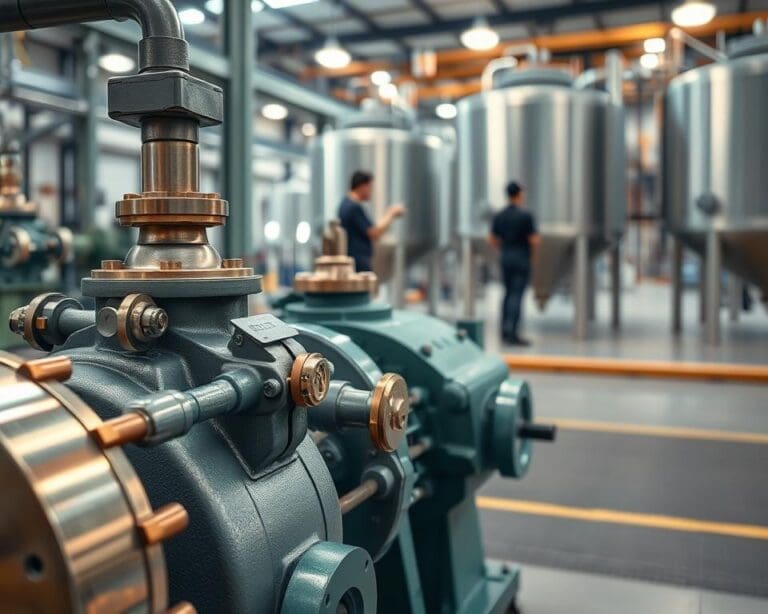The Food Tech GCSE is an exciting and essential course designed to equip students with vital culinary skills and knowledge about food systems. This engaging food technology course blends theoretical concepts with practical cooking experiences, laying a solid foundation for future careers in hospitality, nutrition, and food science. Students will explore the numerous facets of food preparation, understand the science behind cooking, and examine the nutritional aspects that impact health. Not only does the Food Tech GCSE enhance cooking abilities, but it also fosters an appreciation for the complexities of food production and safety. Embracing this experience prepares students for both examinations and the real-world applications of their newly acquired skills.
Understanding the Food Technology Curriculum
The Food Technology Curriculum provides students with a comprehensive education in food-related subjects, blending theory with practical skills. This Food Tech curriculum overview encompasses various elements such as nutrition, food safety, and sustainability. By exploring these key areas, learners gain insights into the complexities of food production and consumption.
Students are encouraged to critically analyse contemporary food technology issues, fostering an understanding of the impact of food choices on health and the environment. This element of the GCSE curriculum aims to prepare the next generation of food professionals capable of making informed decisions.
Essential cooking skills are an integral part of the curriculum, enabling students to apply theoretical knowledge practically. The holistic approach of the Food Technology Curriculum equips learners with the necessary competencies for academic success and prepares them for real-world applications in the food industry.

What Do You Do In Food Tech Gcse
Engaging with Food Tech GCSE offers students a unique opportunity to explore various facets of food science and nutrition. From understanding the intricate details of food chemistry to examining the impact of dietary choices on health, the curriculum is comprehensive and impactful.
Theoretical Concepts in Food Science
Within this course, students delve into the theoretical concepts in food science, which includes the study of food production protocols and related scientific principles. This knowledge empowers learners to grasp how food is produced, processed, and preserved. An exploration into food chemistry and microbiology provides essential insights into ingredient interactions and preservation methods. Understanding these elements not only enriches knowledge but also cultivates a deeper appreciation for the complexity of everyday food items.
Importance of Nutrition Education
Nutrition education plays a vital role in the Food Tech GCSE curriculum. Learners assess dietary needs and discover the impact of various nutrients on overall health. This understanding equips students with the ability to make informed dietary choices, both for themselves and their communities. By discussing contemporary public health issues, the curriculum fosters awareness about nutrition’s pivotal role in enhancing life quality.
GCSE Food Preparation Techniques
GCSE Food Preparation offers a multitude of essential techniques that students apply throughout their culinary journey. Mastering food preparation techniques enables individuals to select and prepare ingredients effectively. Understanding how to handle a variety of ingredients lays a strong foundation for a successful cooking experience, opening doors to creativity and innovation in the kitchen.
Preparation of Ingredients
The preparation of ingredients plays a crucial role in the overall cooking process. Knowledge of different methods helps students optimise the flavours and textures of each dish. Key steps include:
- Washing and cleaning fresh produce to remove pesticides
- Measuring ingredients accurately for consistent results
- Cutting and chopping techniques, such as dicing and julienning
- Marinating and seasoning to enhance taste
Such skills are vital in showcasing the versatility required in GCSE Food Preparation, allowing students to express their culinary talents.
Cooking Methods Explored
Understanding various cooking methods for GCSE is essential for creating a diverse range of dishes. Students are introduced to techniques that include:
- Boiling – A method perfect for cooking pasta, vegetables, and grains.
- Baking – Utilised for pastries, cakes, and other treats.
- Steaming – A healthy approach that retains nutrients in food.
- Frying – Includes both shallow and deep frying, adding texture and flavour.
Each of these cooking methods presents unique benefits and challenges, encouraging students to experiment with their newfound knowledge in the kitchen.
Food Science Experiments
Food science experiments serve as a crucial aspect of GCSE Food Tech, enabling students to delve into the intricacies of food properties and the fundamental science underlying culinary practices. Engaging in these experiments allows learners to observe firsthand how various cooking methods can impact nutrient retention within different food types. Students explore practical food science through activities such as testing the effects of heat on proteins or investigating the role of acids in food preservation.
These hands-on activities shape a deep understanding of food research in GCSE. By experimenting with ingredients, learners can make informed decisions about cooking techniques that best retain nutritional value. Such insight enhances their appreciation for food not merely as sustenance but as a complex interplay of chemistry and creativity.
Moreover, participating in food science experiments often ignites a passion for further study in food technology and related careers. As pupils navigate these challenges, they may discover a niche interest that can lead to exciting opportunities in the food industry.
Developing Food Tech Practical Skills
In the realm of Food Technology, practical skills play a crucial role in shaping the culinary journey of students. By engaging in hands-on experiences in the kitchen, learners cultivate their Food Tech Practical Skills. This practical knowledge not only enhances their confidence but also prepares them for real-world kitchen environments.
Hands-on Experience in the Kitchen
Cooking sessions within the classroom provide students with the opportunity to apply theoretical knowledge in a tangible way. Students learn essential techniques such as chopping, sautéing, and baking, helping them become proficient in different cooking methods. This practical approach fosters creativity while allowing students to experiment with flavours and ingredients in a supportive atmosphere.
Importance of Safety and Hygiene
Kitchen safety remains a top priority during these practical sessions. Students are instructed on the significance of food hygiene practices to ensure their working environment is clean and safe. Understanding these principles instils a sense of responsibility, vital for those pursuing careers in the food industry. By embedding safety and hygiene into their routines, students equip themselves with practices that safeguard both their health and the quality of the food they prepare.
GCSE Food Technology Assessment
The GCSE Food Technology Assessment is a comprehensive evaluation designed to measure students’ understanding and application of fundamental concepts in food technology. This assessment goes beyond theoretical knowledge, incorporating practical skills that students develop throughout their studies.
Students are evaluated based on several criteria, allowing them to showcase how well they can apply their knowledge in real-world scenarios. Practical tasks require students to demonstrate effective cooking methods and preparation techniques. This hands-on approach highlights the importance of practical experience in the learning journey.
Understanding the assessment criteria is crucial for students, as it clarifies what is expected in both practical and theoretical components. Familiarity with these criteria equips students with the confidence to navigate their learning and excel in their assessments.
Employing robust evaluation methods ensures that students receive a well-rounded assessment. This combination of practical and theoretical evaluations helps to promote a deeper understanding of food science concepts, paving the way for future studies and career opportunities in the food industry.
Exploring the Food Tech GCSE Syllabus
The Food Tech GCSE syllabus provides a comprehensive framework designed to equip students with vital culinary and scientific skills. Knowledge of assessment criteria details significantly aids learners in understanding how their practical and theoretical knowledge will be evaluated. This section delves into the essential components of the syllabus, which encompasses various topics related to culinary skills, food science, and nutrition.
Key Components of the Assessment Criteria
The assessment criteria details outline the expectations and benchmarks that students must meet throughout their coursework and examinations. Key components include:
- Demonstrating a range of cooking techniques
- Understanding nutritional principles
- Applying food safety and hygiene regulations
- Exploring the science behind food preparation processes
Preparation for Practical Exams
Preparing for practical exams demands dedication and effective strategies. Focus on honing your skillset by:
- Practising various recipes to increase familiarity with techniques
- Reviewing key concepts from the Food Tech GCSE syllabus
- Utilising time management skills during practice sessions
- Seeking feedback from teachers on practical assessments
Cooking Techniques for GCSE
The journey through Cooking Techniques for GCSE unveils a world of skills essential for any aspiring chef. Mastering fundamental cooking techniques provides students with the confidence needed for successful practical assessments. Each technique serves as a building block, offering versatility in the kitchen.
Fundamental Techniques Every Student Should Master
Among the fundamental cooking techniques, several stand out as vital for every student:
- Knife Skills: Precise cuts and slicing techniques ensure safety and efficiency while preparing ingredients.
- Baking Basics: Understanding the principles of baking allows students to create a variety of baked goods from breads to desserts.
- Flavour Balancing: Recognising how to balance different tastes is crucial for crafting delicious dishes that excite the palate.
These skills not only enhance students’ cooking capabilities but significantly contribute to their overall culinary expertise.
Innovative Recipes and Their Significance
Encouraging students to experiment with innovative food recipes promotes creativity and personal expression in their culinary creations. By incorporating unique ingredients and contemporary techniques, students can develop dishes that surprise and delight. The process of innovation reinforces the importance of adaptability, helping them to thrive in various cooking situations.
As students blend traditional methods with innovative ideas, they prepare themselves for a dynamic culinary landscape, setting the stage for a fulfilling experience in the kitchen.
Food Tech GCSE Recipes
The culinary journey within the Food Tech GCSE curriculum is vibrant and diverse, showcasing a selection of recipes that elegantly balance creativity and practicality. These Food Tech GCSE Recipes not only exemplify essential techniques but also inspire students to engage in collaborative cooking experiences. Each recipe encourages exploration, allowing learners to apply their knowledge from the classroom to the kitchen in meaningful ways.
Incorporating recipe development in Food Tech is a key aspect of the learning process. For instance, students might start with a traditional dish, such as shepherd’s pie, then add a modern twist by experimenting with various toppings or filling options. This encourages them to think critically about flavours and presentation, enhancing their skills in practical cooking in GCSE settings. The process of adapting classic recipes nurtures both their culinary creativity and technical expertise.
Furthermore, these recipes can serve as a foundational element for students to master cooking techniques that are vital for both academic success and personal growth. Whether creating quick nutritious meals or elaborate dishes for special occasions, students will find that Food Tech GCSE Recipes provide a platform for developing a lifelong passion for cooking. Ultimately, this practical application enhances their confidence, igniting their enthusiasm for culinary innovation.









